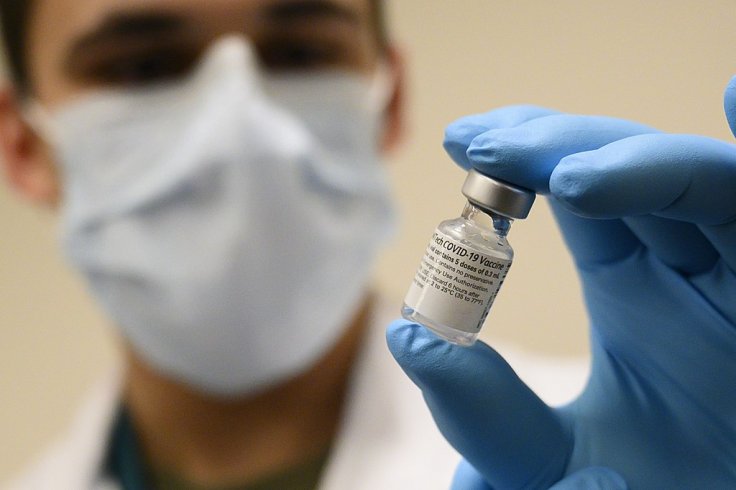Around 36 people in the US may have developed a rare blood condition after taking either Pfizer-BioNTech or Moderna COVID-19 vaccines, said a new report. The unexpected incidents were reported to the Vaccine Adverse Event Reporting System (VAERS), which is a US program for vaccine safety.
The rare blood disorder is known as immune thrombocytopenia (ITP), which may occur when the immune system mistakenly attacks platelets, NYT said.
The VAERS relies in individuals to send in reports of their experiences to the Centers for Disease Control and Prevention (CDC) and Food and Drug Administration (FDA). But it doesn't indicate whether vaccines actually caused ITP in those people.

The Vaccines and Unexpected Cases
According to CDC, as of Tuesday, February 9, more than 43 million COVID-19 vaccine doses have been administered in the US and at least 32 million Americans received one dose of the vaccines. In terms of the rare disorder, in which blood doesn't clot normally, no such cases were reported during the trials of Pfizer-BioNTech and Moderna vaccines.
According to a Pfizer spokesperson, the US pharmaceutical company is aware of the ITP in recipients of their COVID-19 vaccine and takes reports of adverse events "very seriously."
The spokesperson also added that the company is now collecting relevant information to share with FDA. "However, at this time, we have not been able to establish a causal association with our vaccine," he told the Fox News.
The vaccine developers have been monitoring all the adverse events in the recipients. "Serious adverse events, including deaths that are unrelated to the vaccine, are unfortunately likely to occur at a similar rate as they would in the general population," the spokesperson added.
However, the US drug making company also noted that the 36 reports doesn't necessarily mean 36 separate patients developed the ITP after getting the Pfizer-BioNTech vaccine. There is a possibility of duplicate entries submitted to the VAERS system, the company said.
The Affected People
One of those people who developed ITP was Dr. Gregory Smith. The 56-year-old obstetrician from Miami Beach noticed the symptoms of the condition only three days after he got the Pfizer-BioNtech vaccine on December 18. His wife, Heidi Neckelmann, took it to the Facebook after the death of the doctor and blamed the vaccine for causing such a strong reaction.

Another vaccine receiver, Luz Legaspi, 72, was taken to a hospital in New York City in mid-January. She needed medical attention just a day after she received her first dose of Moderna vaccine. At that time her platelet count was zero and doctors advised her to not leave the bed for at least a week. They feared that Legaspi could lose her balance and fall, leading to a similar hemorrhage that could be fatal.
Even after receiving platelet treatment the count did not improve for 10 days in the hospital. But when Dr. James Bussel, a pediatrician and expert in ITP, heard about Legaspi's condition he called her doctor on January 28 to consult on her care. Within two days her platelet count jumped to 70,000 and she was able to leave the hospital.
Bussel and his colleague has studied 15 cases of ITP that people developed after receiving COVID-19 vaccines. The study findings have been submitted to a medical journal. However, the experts said that it is too soon to tell whether the patients affected by the disorder will have lasting recoveries or recurrences of the platelet problem.
According to Bussel, it is possible that there is a link between ITP and the COVID-19 vaccines, but a clear picture is still not available.
The disorder, Idiopathic Thrombocytopenic, is now more commonly referred to as Immune Thrombocytopenia (ITP). People affected by ITP often develop purple bruises called purpura on the skin or mucous membranes inside the mouth. These marks can also appear as pinpoint-sized red or purple dots on the skin called petechiae, which often look like a rash.
Symptoms
- Bruising easily
- Pinpoint-sized petechiae, often on the lower legs
- Spontaneous nosebleeds
- Bleeding from the gums
- Blood in the urine
- Blood in the stool
- Abnormally heavy menstruation
- Prolonged bleeding from cuts
- Profuse bleeding during surgery









